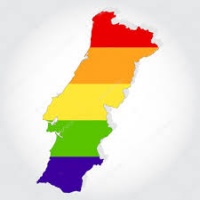LGBTQ Portugal
The history and current state of the LGBTQ community in Portugal reads like a microcosm of the greater state of homosexual rights in the developed world. Portugal itself is a country imbued with a rich religious and political past which often criminalized homosexuality, yet there has also been a prominent LGBTQ presence throughout. This includes an influential and powerful gay king in Afonso VI who, as the second king of the country, lead it to independence and eventual military glory. Today, there are prominent transgender activists such as Julia Mendes Pereira, intersex activists including Santiago D’Almeida Ferreira, scientists such as Alexandre Quintanilha, and business leaders including Antonio Simoes.
There have been active LGBTQ organizations in the country since the founding of the Revolutionary Socialist Party’s Homosexual Working Group (GTH) in 1974. The Homosexual Working Group, an AIDS organization, was founded in 1990, as was the country's first lesbian magazine 'Organa'. Other milestones include the creation of ILGA-Portugal, with the opening of its Gay and Lesbian Community Centre (1997) in Lisbon, Opus Gay (1997) and Clube Safo (1996), as well as Portugal.Gay.pt (1996), an internet-based organisation, 'Korpus' magazine (1996), the Lisbon Gay and Lesbian Film Festival (1997), and the radio programe 'Alternative Lives', since 1999.
The country de-criminalized homosexuality in 1982, and also allows adoption, same-sex marriage and military participation. Discrimination in the workplace and housing markets is illegal, and homophobic acts are criminalized. In 2018, changing one's gender identity on personal documents was made legal and does not require surgery or state approval, and unnecessary surgeries are no longer valid for intersex infants. There is an active LGBTQ community presence in all major cities throughout the country.
Portugal is a favoured travel destination by the LGBTQ community for many of these reasons, but is also attractive for its weather, cuisine, cultural attractions, and much more.
To read the biographies of prominent LGBTQ Portuguese, simply click on their names:
- Asdrubal Antonio d'Aguiar, Medicine/Academic
- Afonso VI, king
- Miguel Vale de Almeida, Academic
- Eugenio de Andrade, poet
- Al Berto, poet
- Antonio Botto, poet
- Santiago D’Almeida Ferreira, inter-sex activist
- Maria Teresinha Gomes, activist
- Manuel Luis Goucha, television host
- Rui Oliveira Marques, journalist
- Francisco Correa Netto, religion
- Adolfo Mesquita Nunes, lawyer and politician
- Julia Mendes Pereira, transgender activist
- Joana Cadete Pires, lawyer
- Alexandre Quintanilha, scientist
- Patricia Ribeiro, transgender singer
- Antonio Simoes, businessman
- Antonio Variacoes, singer
- Richard Zimler, writer

